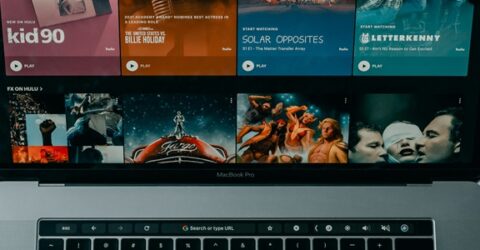What are IPTV services, and are they legal?
They’re used by over 17 million people in Europe, but what are IPTV services?

As recently as the 1980s – which is recent in the timeline of human history, if not in terms of consumer technology – television was a simple process.
You had four terrestrial channels to choose between, and that was it unless you made a trip to the local video store.
The ill-fated satellite television war in the late Eighties, where BSB and Sky competed to see who could lose the most money, was followed by the introduction of cable services from the equally loss-making likes of Telewest.
Yet it was the internet which transformed our viewing habits, driving even the venerable BBC into the streaming sector while opening up a literal and metaphorical world of choice.
Alongside streaming media platforms like Netflix and Disney+, it’s now possible to view a smorgasbord of broadcast media via internet protocol networks (IP for short).
This is known as IPTV, and it’s big business nowadays.
You’ll find it in hotels and hospitals, while it’s also accessible through modified streaming media boxes or dongles, as well as the web browser or smartphone app of your choice.
Yet despite their legitimate uses, IPTV services are widely associated with piracy – the flipside of the online streaming coin…
A bunch of pirates
A report published in 2022 from the Audiovisual Anti-Piracy Alliance concluded that the European pay TV industry was losing over €3 billion each year to illicit IPTV piracy.
It was also reported that a population comparable to that of the Netherlands was using pirate IPTV services across the continent, with over a third of users in the 16-24 age bracket.
More recently, the AAPA announced that 14 per cent of all EU citizens had intentionally – the key word here – accessed pirated content online in the last year.
Platforms used to access this content include what the industry refer to as ISDs – illegal streaming devices.
They typically include Kodi boxes or modified Amazon Fire sticks, which can be ‘chipped’ for around £40 on the black market with software capable of accessing paywalled streams.
These devices are legal to own, usually capable of broadcasting content from free-to-air broadcasters, as well as hosting subscription services the end user legitimately pays for.
However, that’s not all they can do.
What are IPTV services capable of doing illegally?
The devices listed above can also be used to illegally access other material without paying the appropriate subscriptions.
Smartphones and tablets may be used to access pirate IPTV services as well, using apps that often exist outside the curated boundaries of official app stores.
Common descriptions of pirate-ready IPTV devices include “jailbroken” (a term also used to describe smartphones released from official app store constraints) or “fully loaded” hardware.
Purpose-made piracy hardware will lack parental controls and there may be safety issues around their manufacturing – unlike legitimate hardware, they’re often not built to last.
Their primary function is to bypass the licensing and subscription models that cover premium broadcasting content such as live sports, music concerts and high-profile films or TV shows.
While the people jailbreaking devices and organising illegal streams are in the crosshairs of (admittedly overstretched) copyright enforcement bodies, consumers are also liable for their own actions.
Don’t expect much sympathy from the authorities if you plead ignorance to watching live Premier League football at 3pm on a Saturday, during the UK’s broadcasting blackout…
What are the risks of illegal streams?
As well as criminal sanctions, using unregulated software places you at risk of exposure to malware including ransomware and drive-by downloads.
If you’re offered an Amazon Fire stick that’s described as unlocked or jailbroken, it will probably have illegal software on it.
Equally, if you’re offered a subscription package that seems too cheap (Sky Sports for £5 a month) by someone outwith an official organisation, be very suspicious.
Illegal streaming services often originate overseas, with poor presentation and grammar, with complex interfaces and potentially bias towards foreign languages.
Good luck speaking to a customer services representative if you encounter any issues…






